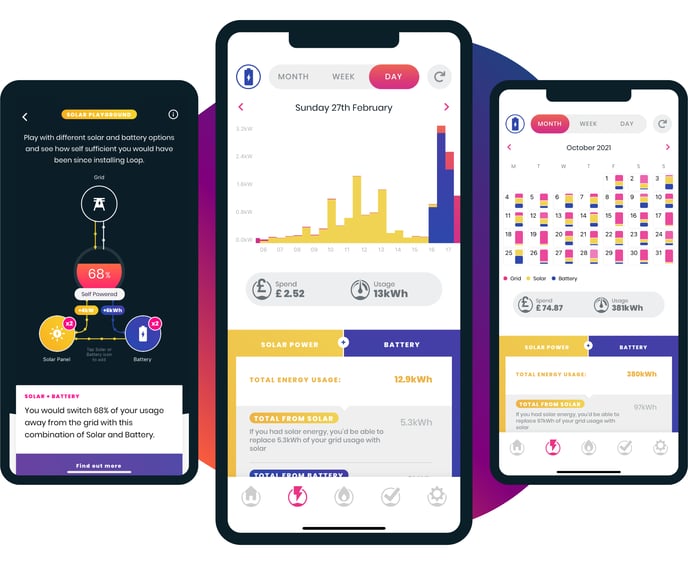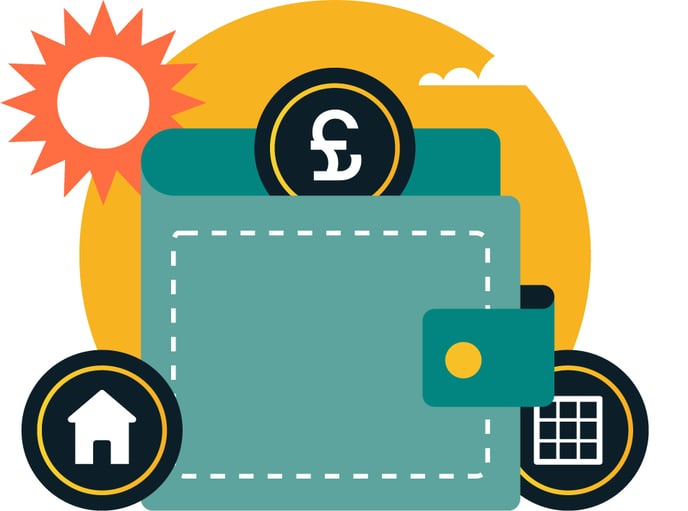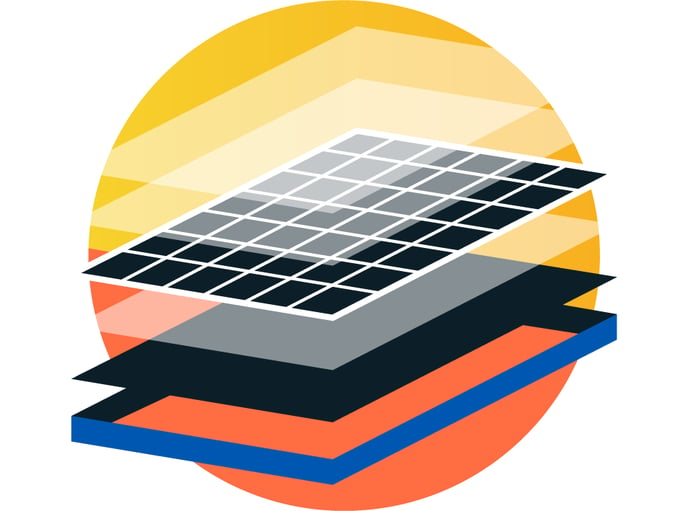Loop’s crunched the data and you’ve seen how self-powered you could be in the app’s Solar Playground. What’s next?

How do you get solar and battery installed, how much would it cost and what would you save? Read on…
The economics
Solar panels and home batteries are a long term investment. Panels come with 25 a year performance guarantee: you’ll see a reduction in your energy bills every year for the next 25 years and beyond. They’re incredible pieces of technology.
The costs of a solar installation vary based on factors such as the type of tiles on your roof and the scaffolding requirements. The cost of a 4kW installation typically starts at £6000.
A home battery increases your self-sufficiency but doesn’t make financial sense for everyone. Batteries typically last around 10 years with their cost varying depending on supplier and their capacity. Typically a home battery adds between £3000 for a small battery, and up to £9000 for a Tesla Powerwall to the cost of installation.
An installation optimised for you
Based on your Loop data, we will help you decide the optimal setup for you – getting the right balance between cost of installation and the savings you’ll see (including the payments you’ll receive for the electricity you sell to the grid under the Smart Export Guarantee).
Not everything is driven by data though! You know your house best and we, alongside our installation partners, will help you through key decisions on the look and performance of your installation. The key decisions that you’ll have to make are below.
In-roof or on-roof panels
Typical UK solar installations attach a frame to your existing roof and put panels into the frame. Some older installations have relatively large gaps between the roof and the frame but modern installations are much more tightly arranged. However, if you don’t want a frame at all, it’s possible to remove a section of your existing tiles and put the panels in the roof so they lie flush. This can be a bit more complex with a typical additional cost of between £100 and £200.
Standard efficiency or high efficiency panels
We only recommend high quality, efficient panels. However, there are even higher efficiency options available at a premium cost. We will help you understand the financial payback of higher efficiency panels. The most efficient panels will produce an additional 40% of energy but at a typical additional cost of £1500 – £2000. They will increase your self sufficiency and reduce your carbon emissions.

Loop solar: coming soon!
We're working hard to create a Loop Solar installation offer. Interest in solar has gone through the roof as energy prices have risen leading to shortages of solar installer capacity. We're working hard to overcome the challenges and bring Loop Solar to market.